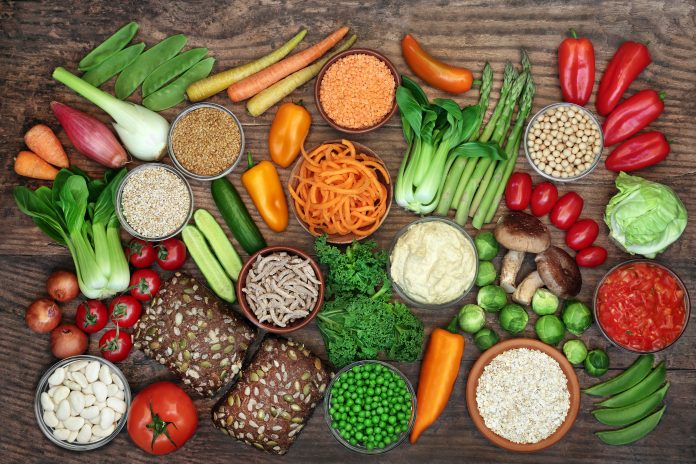
Diabetes is a disorder of carbohydrate metabolism and describes Diabetes (siphoning through) Mellitus (sweet). People with this disease have high degree of blood sugar called hyperglycemia and shed sugar in their urine. Factors contributing to high blood sugar include reduced insulin production, decreased insulin utilization, and increased glucose production by the liver. Diabetes is caused by a complex interaction of genetics, environmental factors and lifestyle choices.
There are two main kinds of diabetes
- Type I, insulin dependent diabetes. People with this disorder don’t produce enough insulin. Type I diabetes is caused by autoimmune, genetic and environmental factors and even possibly by viruses. It develops in children and young adults. Symptoms consist of continuous appetite, increased thirst and frequent urination, weight loss, extreme fatigue and blurred vision. If not treated with insulin, a person with type I diabetes can lapse into a life-threatening diabetic coma, also called diabetic ketoacidosis.
- Type II, sometimes called non-insulin dependent or insulin resistant diabetes. In type II diabetes, the body produces enough insulin but isn’t helpful in transferring glucose in the blood into the cells. About 90% to 95% of individuals with diabetes have type II diabetes. This kind of diabetes may include symptoms like those of type I and frequent infections, and slow healing of wounds or sores. Some people don’t have any symptoms. Type II diabetes is more common among the obese, the older, Asians, Hispanics, African Americans and Pacific Islanders.
Gestational diabetes is just one more kind of diabetes that occurs during pregnancy and these girls are most likely to develop diabetes later in life.
How to Manage Diabetes?
Type I diabetes always requires insulin injections along with diet and exercise.
Type II diabetes can be controlled with diet and exercise alone but may require drugs sometimes. Additionally, taking multivitamins, nutritional supplements, herbal supplements and organic drugs shown in the table below may significantly reduce complications. Keeping diabetes and other health conditions in mind, some sites may list some or all of those supplements in the categories like Blood Sugar Metabolism, Vitamins, Diabetes, etc.. It’s necessary that the diabetes sufferers also continue to monitor their blood glucose level as recommended by their physician.
Vitamins and Herbs and Their Effects on Diabetes
- Bilberry extract: Helps prevent and reduce the severity of diabetic cataracts.
- Bioflavonoids: Helps prevent vision loss. Helps prevent damage to vitamins E and C from diabetes.
- Biotin: Biotin and Chromium work well together to decrease glucose levels. With the support of chromium, biotin helps the pancreas operate effectively, helps insulin work better to reduce glucose levels.
- Chromium (Picolinate): Chromium and Biotin work well together to decrease glucose levels. With the support of biotin, chromium helps insulin work better, helps the pancreas operate effectively, and lowers blood glucose levels.
- Copper (Picolinate): Copper helps stop diabetes-related damage to blood vessels and nerves, and lowers blood glucose levels by helping protect the cells in the pancreas that make insulin wholesome.
- Fenugreek seed extract: Helps kidneys and liver metabolize blood sugars more effectively; helps lower blood glucose.
- Folic Acid: In combination with B12, folic acid helps prevent strokes and loss of limbs due to diabetic complications.
- Gymnema Sylvestre: Helps balance blood glucose and could help control weight.
- Magnesium (Chelate): Helps insulin work more efficiently and helps relieves neuropathic pain.
- Manganese (Chelate): Helps prevent damage to nerves and blood vessels.
- Selenium: Helps take blood glucose into the cells. Selenium also protects blood vessel and nerve in the damaged due to elevated blood sugars. Selenium is also known as, an”insulin mimic”.
- Vitamin B6 (Pyridoxine): With B12, and folic acid, B6 helps prevents heart attacks and nerve damage. Helps prevent diabetic blindness, helps maintain vision clear and ordinary.
- Vitamin B12: In combination with folic acid, Vitamin B12 helps prevent stroke and loss of limb because of diabetic complications. Also works with Vitamin B6.
- Vitamin C (Ascorbic acid): In conjunction with vitamin Ehelps push sugar in the blood stream into the cells. Keeps blood vessels and kidneys healthy.
- Vitamin E (Pyridoxine): Vitamin E together with B vitamin helps maintain the pancreas healthy and helps prevent nerve damage. Helps blindness, and heart attacks.
- Zinc (Pyridoxine): Helps blood glucose enter the cells and help insulin work efficiently. All rights reserved.





